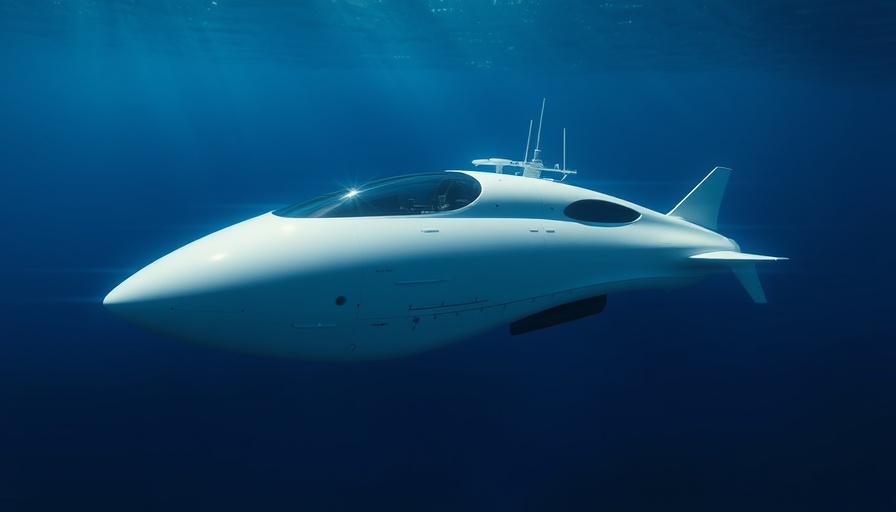
Introduction: A Preventable Tragedy
The recent implosion of the Titan submersible, which carried five individuals to their fate, has brought to light serious industry concerns regarding safety and workplace culture. According to the US Coast Guard Marine Board of Investigation (MBI), a "toxic workplace culture" and "critically flawed" safety practices were among the key factors contributing to this tragedy. With lives at stake, this investigation not only uncovers the grim reality of workplace environments in high-risk industries but challenges organizations everywhere to reassess their own cultures and practices.
The Haunting Underpinnings of a Toxic Culture
As detailed in the MBI's extensive 335-page report, the culture within OceanGate, the company that operated the Titan submersible, was riddled with intimidation tactics aimed at silencing dissent. Employees who wanted to voice their safety concerns faced potential job loss, creating an environment where fear overshadowed fundamental safety protocols. Such cultures not only jeopardize the safety of operations but also affect overall employee morale and trust.
Historical Context: Lessons from Past Incidents
This incident draws parallels with historical technological disasters where poor workplace culture has led to catastrophic outcomes. For example, the Challenger shuttle disaster in 1986 was partly attributed to its engineers' voices being overlooked due to organizational pressures. The common thread is clear: disregarding concerns and silencing employees can lead to devastating consequences, and the Titan tragedy serves as a harsh reminder that a strong safety culture is vital for survival in high-stakes environments.
Counterarguments: The Role of Innovation vs. Safety
While innovation and the drive to push boundaries are commendable characteristics in industries like deep-sea exploration, they must function within a framework that prioritizes safety and ethical practices. Some may argue that risk is inherent in exploration; however, the evidence presented in the report suggests that reckless abandon under the guise of innovation is not acceptable.
Emotional Impact: Voices of the Lost
The ordeal experienced by the Titan's passengers - Stockton Rush, Shahzada Dawood, his 19-year-old son Suleman, British adventurer Hamish Harding, and Titanic expert Paul-Henri Nargeolet - is a tragic reminder of human vulnerability when faced with systemic failures. Families and communities are left grappling with the emotional aftermath of losing loved ones, stirring calls for a review of operational cultures in similarly perilous sectors.
Recommendations for Change: Prioritizing Safety
The investigation resulted in 17 actionable safety recommendations aimed at fostering a more robust environment. Recommendations include implementing effective whistleblower protections, regular safety assessments, and reinforcing the importance of adherence to established protocols. These steps are crucial not only for the future of OceanGate but for any company in high-risk fields.
Future Predictions: Shifting Workplace Dynamics
As industries face increasing scrutiny over workplace culture and safety practices, the Titan incident may serve as a turning point. Companies might adopt new models for assessing employee well-being and organizational health, moving forward with a greater emphasis on mental health at work, productivity hacks, and a more balanced work-life dynamic. This could potentially reshape the future of work.
Conclusion: Take Action in Your Own Workplace
In light of this investigation's findings, reflect on your own workplace culture. Are employees encouraged to voice concerns? Is safety truly prioritized? By fostering a trustworthy environment where employees feel empowered, we can collectively work towards avoiding tragedies like that of the Titan. It is time for organizations to heed this lesson—ensure safety, respect, and open dialogue are at the forefront of their cultures.
 Add Row
Add Row  Add
Add 




Write A Comment